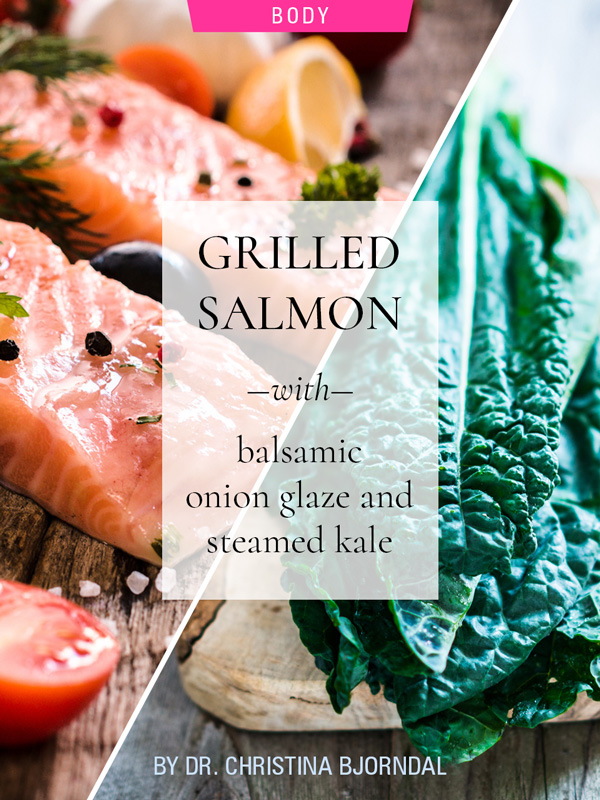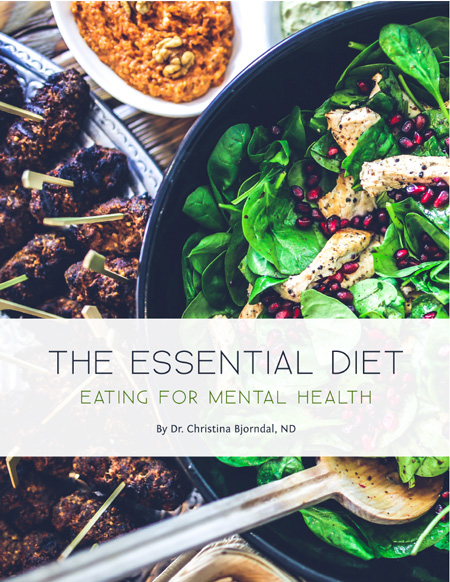What you eat profoundly effects your emotion state — enjoy this nutritious recipe designed to feed your palate, body and mind.
—
They don’t say food is medicine without reason. My profound 25-year journey back to restored mental wellness began with diet and supplementation. I’ve pulled 2 recipes from my book, The Essential Diet: Eating for Mental Health, because these recipes are easy to make, versatile and are powerhouse foods.
My entire book is filled with healthy, simple recipes that will guide you to change how you feel physically, mentally and emotionally — to support overall wellness.
It starts with one small step. For me, this is where it started.
There is a growing body of scientific evidence that voices support for the age-old idea that what we eat affects not only our bodies, but our minds as well. It is important to note that many of the nutritional building blocks required to make neurotransmitters and hormones are essential nutrients. This means that we are unable to make them ourselves, and we must acquire them from our diet.
From a root cause perspective, taking medication may not be a permanent solution to your problems if you never fix the underlying biological terrain of your body to support the production of neurotransmitters and hormones involved in mood regulation.
It is important to understand that everything that enters your body informs your body in one way or another.
The key is to make sure that you are sending your body the right messages. The fact that food is so emotionally potent is empowering. And each of us has the ability to modify our diet to benefit our bodies and minds.
WILD SALMON is rich in the essential amino acid, tryptophan, which gets converted to the feel good neurotransmitter in the body called serotonin. This is often low in people with anxiety and depression. Wild salmon is also rich in omega 3 fatty acids, which are beneficial for mental health due to its effects on serotonin receptors in the brain.
KALE is packed with many nutrients (vitamin A, vitamin B6, iron, vitamin K, magnesium, potassium calcium and vitamin C) definitely rating it among the best super foods. Eating more kale is a great way to significantly increase the total nutrient content of your diet.
Grilled Salmon with Balsamic Onion Glaze
(Serves 2)
Ingredients:
Balsamic Onion Glaze
- 2 Tbsp olive oil
- 2 large onions, sliced
- ⅓ cup balsamic vinegar
- salt and pepper
Salmon
- ½ cup balsamic vinegar
- 2 sprig fresh rosemary
- 6 x 4 oz wild salmon fillet portions, bones removed
- olive oil
- salt and pepper
Directions:
Balsamic Onion Glaze:
Heat oil in a large sauté pan over medium heat and add onions. Sweat onions, stirring often, until all liquid has evaporated, about 20 minutes. Add half the balsamic vinegar and simmer until absorbed. Add remaining balsamic vinegar and reduce until a glaze. Season to taste and set aside.
Salmon:
- Preheat grill to medium-high.
- Reduce balsamic vinegar with rosemary in a small saucepot to a glaze consistency, about 8 minutes and set aside.
- Brush salmon fillets lightly with olive oil and season.
- Grill skin-side up, for 4 minutes, then rotate 90 degrees and cook 4 more minutes.
- Turn salmon over and cook for 8 more minutes for medium done-ness.
- Brush salmon with balsamic during last 5 minutes of cooking.
- Serve salmon with balsamic onions and steamed kale on the side.
Steamed Kale
(Serves 4)
Ingredients:
- 1 bunch kale (stems removed), chopped
- Juice of 1 lemon
- 2-3 tbsp olive oil
- Pinch of sea salt
Directions:
Steam kale until tender, approx. 3 min. Dress with lemon juice, olive oil and sea salt. Swiss chard and mustard greens can be prepared and dressed the same way.
Enjoy!
You may also enjoy eating GreenSpace Superfood Salad by Joel Kahn M.D.

